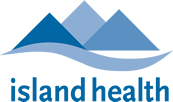Your Learning Portfolio
CPRB Standard 2.2.3 (2)
"The resident shall use a learning portfolio or equivalent to facilitate self-assessment and provide evidence of skill development over the course of the program. The learning portfolio should include preceptor assessments, monthly reports, quarterly or other summative assessments, self-assessments, career objectives, clinical activities during the rotations, awards, projects, and other documentation relating to a resident’s progress throughout the duration of the residency program."
Overview of the LEARNING Portfolio
The creation and maintenance of a Learning Portfolio (LP) is a core mechanism by which our residents engage in reflection and documentation throughout their residency year. All residency activities and learning experiences are fodder for the LP and the resident should find themselves updating their LP on a regular basis. Not only is maintaining a learning portfolio a program requirement, it is a great way to set a pattern of introspection and self-assessment that you will use throughout your career.
Your LP serves as a record of the progress you have made during the residency program and points to the direction you are going. The resident's one45 profile will serve as the resident's learning portfolio for their residency program which will contain their rotation and academic half day schedules, preceptor assessments for resident performance during rotations, resident self-assessments during rotations and other program activities, such as academic half days and presentations. They also will contain experience logs, personal rotation objectives, summative and formative assessments, career and program objectives and preceptor and resident self-assessment of their progress.
Your personal learning objectives for the overall residency program and for your individual rotations
Your reflections on your learning experiences and how they have shaped your practice
The work that you have completed as part of the program - presentations, article summaries, project work, etc
PROCEDURE LOG: PERSONAL LEARNING OBJECTIVES OF RESIDENCY PROGRAM & INDIVIDUAL ROTATIONS
At the beginning of the residency year and prior to the start of each rotation (rotation exceptions noted below) you need to document your personal learning goals and objectives in the one45 “personal learning objective procedure log” and document how you will achieve each goal. To do so, go to your personal rotation objectives procedure log and click “create new log entry”. Select the rotation that the log entry will pertain to. To enter personal learning goals and objectives of the overall residency program, select “R Year” as the rotation from the list. It is important to complete and submit the personal learning objective log before the rotation, as this document will be forwarded to the preceptor for this rotation for sign off. The preceptor and resident will review these objectives with the resident on the first day of the resident's rotation. The preceptor and resident will seek out opportunities for the resident to achieve these objectives during the rotation. In creating personal rotation objectives, the resident should reflect on progress and experiences in the residency to date. Include areas of focus for both knowledge and skill development.
Procedure Log: Reflections On Learning
Reflection is an important component of learning and is also important in the development of professionals, including pharmacists. You may reflect on experiences you’ve had with patients, discussions you’ve had with preceptors or your fellow residents, or the “a-ha moments” that you’ve had in your independent study. Reflect on why the learning experience was significant, and how will change your practice. You may also reflect on any presentations, nursing in-services and journal clubs you presented/facilitated. Avoid posting any confidential patient information in your reflection. To document your reflections on learning, go to the procedure log “Reflections on Learning” and click “create new log entry”. Choose the rotation and preceptor for the rotation you are reflecting on, and make your entry.
Professional Portfolio
Throughout the residency year residents will present cases, journal clubs and deliver lectures and presentations to other residents, pharmacists and other health care professionals. Residents will also complete cultural safety training and will undertake the TCPS2 training for research. The residency coordinator will collect and preserve these documents, presentations, papers and certificates in your folder located on the residency network drive as evidence of your work in our residency program. Residents are expected to forward these documents to the residency coordinator throughout the year.
Expectations of the Resident
In order for it to fulfill its potential as a learning tool, residents must maintain an up-to-date ePortfolio at all times during the program. This is both an Island Health program requirement and a CPRB Standard. It is far more useful and less painful to drop info into it as it happens than to try to collect your thoughts long afterward.
Below are some specific program expectations for the ePortfolio (an Example Reflection Post can also be found at the bottom of this page):
A reflection on learning should be completed for each rotation, at minimum, within three days of the rotation ending. Residents are encouraged to post more frequently, even if it means shorter entries.
Occasionally, preceptors may include specific reflections in the Reflection on Learning procedure log as a required activity, in addition to the minimal requirement outlined above.
Each post should have a category (e.g. rotation) and a tag (e.g. CPRB competency).
Posts can be in point form or in prose, this is up to the individual resident.
There is no minimal posting length.
A typical reflection should include a brief description of important learning experiences and the salient point(s) that will influence the resident’s practice going forward.
In preparation for each upcoming rotation, residents should post at least 3 or more specific learning objectives that they wish to focus on during that rotation prior to the start of the rotation as described above in the “Personal Learning Objectives Procedure Log”. These may be drawn from assessments done of them or from their personalized program learning objectives set at the beginning of the year.
What NOT to post in your “Reflections On Learning” Procedure Log:
Descriptions of what you "did" without a description of what you learned.
Patient-specific information. You are encouraged to reflect on what you have learned in your provision of direct patient care but remember to exclude any identifiable information about any patient or caregiver.
Your two learning portfolio procedure logs (Personal Rotation Learning Objectives and Reflections on Learning) are accessible to the preceptor for the specified rotation and provides a basis for preceptors to tailor rotations to best meet your learning needs, avoid redundancy, and respect your learning style as much as possible.
Note also that ePortfolios have proven useful to professionals as a means to track their progress and learning, and provide evidence of learning to accreditation and licensing bodies.
If you have any technical difficulties with your ePortfolio inform the Program Coordinator immediately for help. Do not “let it slide” for any length of time, as these MUST be kept up to date.
Example Reflection Post
I have reached my fourth week of my critical care rotation and I have been focusing on my understanding of the use of vasopressors and intropes - when they are indicated and how to monitor for necessary dosage changes. What I've taken away is that monitoring for vasopressors is all about perfusion, or blood flow. I can monitor perfusion by considering systemic and regional markers. Sytemic markers = MAP, lactate clearance, and mixed venous oxygen saturation. Local markers = CNNS (GCS), cardiac (ECG, cardiac echo), gastrointestinal (ng aspirates, abdominal distension, output), liver (transaminases, synthesis markers), renal (urine ouptut, SrCr), skin (mottling, temperature).
For my next rotation (emergency), I know that patient triage will be very important and that communicating key issues to pharmacists and other healthcare professionals will be very important. My specific learning objective for this rotation will be to succinctly summarize and communicate key issues for follow-up by the receiving healthcare professional, including specific actions that need to be done.

